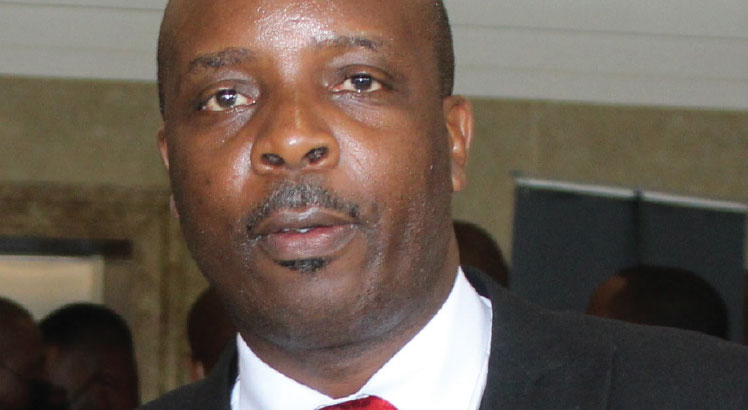Former Cabinet minister Uladi Mussa may have walked to freedom in April following his presidential pardon, but Malawi Supreme Court of Appeal holds his political future through its pending interpretation of President Lazarus Chakwera’s decision.
In the case where the Supreme Court is set to interpret the President’s decision on Mussa, who was serving a five-year prison sentence for abuse of office and neglect of duty while serving as minister of Homeland Security in President Peter Mutharika’s administration, the nine-judge panel sitting in Lilongwe yesterday heard oral submissions from lawyers representing Mussa and the Anti-Corruption Bureau (ACB).
Mussa at the court premises on Tuesday accompanied by well-wishers
However, the court, which said it will communicate the date of its judgement in due course, expressed reservations with Mussa’s prison discharge certificate tendered in court which showed that he was granted a “special pardon”.
In his submission praying for the quashing of his client’s convictions following the pardon, private practice lawyer Chauncy Gondwe, who is representing Mussa, cited two American case laws which concluded that a pardon erases both conviction and punishment.
He likened a pardoned person to a newborn infant and argued that just like God forgives sin, the President has the power to erase both the conviction and sentence through a pardon.
“Pardon removes guilt and everything is restored. Once granted, the rights of the individual are restored whether political or civil rights. The offender is innocent as he never committed a crime,” Gondwe said.
On the panel’s reservations with the terminology on Mussa’s discharge certificate, he clarified that prison authorities may have used a different term, but the meaning remained the same claiming that the Constitution in Section 89(2) only recognises one type of pardon.
But taking his turn, private-practice lawyer Kamudoni Nyasulu, representing the ACB, told the court that Mussa’s release from prison contravened the law because some pardon requirements were not satisfied.
The revered prosecutor, who has previously served as Director of Public Prosecutions and at United Nations tribunals, cited Section 112 of the Prison Act and said there was no written authority to show the type of pardon Mussa was granted. He said it was also not clear whether the pardon was conditional or free.
Nyasulu observed that even though there is power in Section 89 of the Constitution, currently there is no enabling provision for sentences or convictions other than the death penalty.
He said: “A conviction and sentencing are judicial processes, the pardon is an Executive action. You cannot terminate a judicial process. That is why the law states that when a President has pardoned [someone], a report should be submitted to the judge who sentenced to be entered in the record of the case.
“Therefore, the record continues to exist, otherwise there will be no point to enter the matter into a record that has been erased.”
In his submission, Nyasulu also recommended enactment of legislation that deals with convictions so as to deal with the ambiguities.
If the court interprets in Mussa’s favour, it will mean he will have a chance to bounce back into politics if he wishes to run for an elected office.
The panel hearing the case comprised Chief Justice Rizine Mzikamanda and Justices of Appeal Charles Mkandawire, Rowland Mbvundula, John Katsala, Lovemore Chikopa, Healey Potani, Ivy Kamanga, Dorothy NyaKaunda Kamanga and Dingiswayo Madise. Mussa was convicted and sentenced alongside former regional Immigration officer David Kwanjana and businessperson Peter Katasya.
The post Court pends Uladi fate first appeared on The Nation Online.
 Moni Malawi
Moni Malawi 

